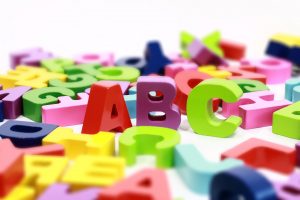 In elementary school and beyond, the stakes for students are higher than ever before. Third-graders are practicing algebra. Standardized testing is more and more important. Even kindergartners often forgo play-time to work on reading and writing. As a result, preschool programs are increasingly focused on getting kids ready for elementary school.
In elementary school and beyond, the stakes for students are higher than ever before. Third-graders are practicing algebra. Standardized testing is more and more important. Even kindergartners often forgo play-time to work on reading and writing. As a result, preschool programs are increasingly focused on getting kids ready for elementary school.
But does pre-K really help kids perform better over their academic careers? If you read news articles, you will see opinions on this topic vary widely; one article tells us “Evidence Suggests Preschool is a Waste of Time and Money” while another says, “Investing in Preschool Beats the Stock Market, Hands Down.” What’s the real answer?
It turns out, that’s a complicated question. There are reams of evidence about the effectiveness of preschool programs and the best curricula for young learners. And new research is published monthly. Here’s what the latest research tells us.
First, preschool programs can help kids get ready for kindergarten. Researchers from Vanderbilt University tracked several thousand students from Tennessee who were enrolled in universal preschool programs through third grade. Children who attended the preschool program scored better on math and literacy tests. Kindergarten teachers also reported that students who attended preschool were better prepared for kindergarten and had more positive interactions with their peers compared to students who didn’t attend preschool. A broad body of evidence finds these same results for Headstart programs across the country.
Both the Tennessee study and the systematic review find preschool programs make the biggest difference for children who come from low-income and non-English-speaking families.
But there’s a catch. In the Tennessee study, students were retested on achievement measures every spring. By the end of kindergarten, those who did not attend preschool caught up to those who did. And by the end of the third grade, kids who did not attend preschool were scoring significantly better than those who did. The same finding was observed for social skills: By the end of third grade, teachers reported students were relating to their peers about the same, whether they attended pre-K or not. And those who did attend pre-K had poorer work skills and more negative feelings about school.
Although in the Tennessee study, pre-K did not make a difference later in elementary school, large pre-K programs in other states have yielded more positive results. A longitudinal study tracked nearly one million children in North Carolina who attended state-funded preschool programs from 1995 to 2010. Researchers initially followed students through fifth grade. They found that students who attended preschool scored better on reading and math tests throughout elementary school.
What’s the difference? The research seems to point to the quality of the program. In preschool, high-quality curricula include student-directed learning, open-ended play, physical activity and personal connections with teachers. Without these attributes, the positive effects of preschool seem to fade in later school years.
For example, in the Tennessee pre-K program, students spent 25 percent of each eight-hour day in transition between activities. The most common learning activity was whole-group instruction, where one teacher lectured to the entire class. And students only spent, on average, 15 minutes a day on the playground or in a gym.
Students who participated in the North Carolina program had a very different experience. First, the program began with infant daycare and offered developmentally appropriate care through age 5. Throughout, it met the criteria for a high-quality experience with low class sizes, plenty of time for free play and little whole-group instruction.
While the far-reaching North Carolina program yielded impressive results over students’ lifetimes, the research shows less extensive, high-quality pre-K programs can yield positive results as well. One analysis found that preschools focused on free play encourage literacy skills such as recognizing letters and numbers, understanding the elements of spoken language, writing skills and remembering lists of sets of objects. Another meta-analysis published in the Journal of Psychology found that children who attended preschool programs focused on social and emotional development were less likely to engage in antisocial behaviors such as breaking the rules, physical aggression, cheating and stealing later in life.
What does all of this mean? For starters, preschools can have positive effects on the lives of children all the way to adulthood. But what really matters are the details. Preschools yield the best results when they create strong bonds between students and teachers and allow for student-directed learning, free play and lots of physical activity.



Speak Your Mind